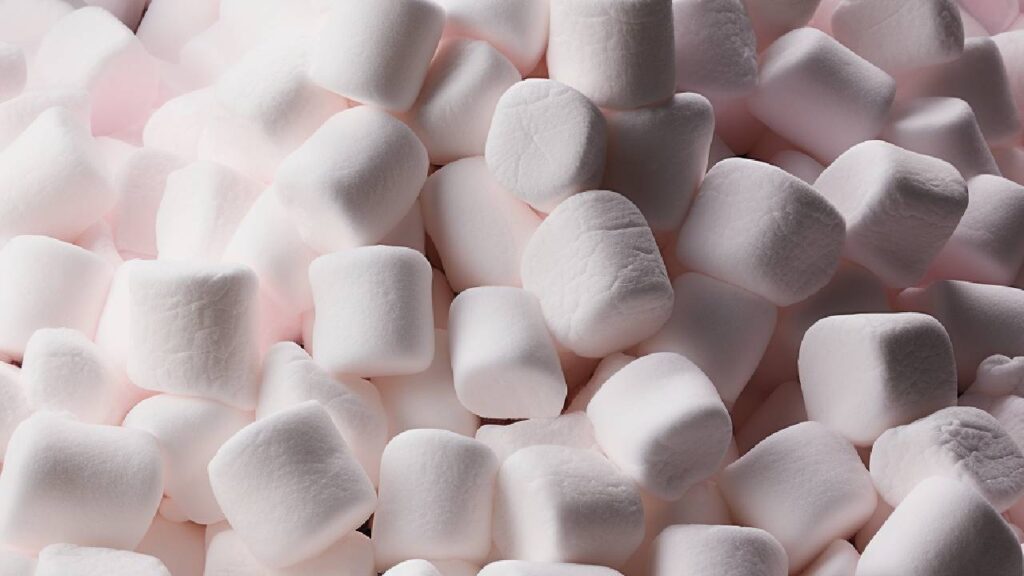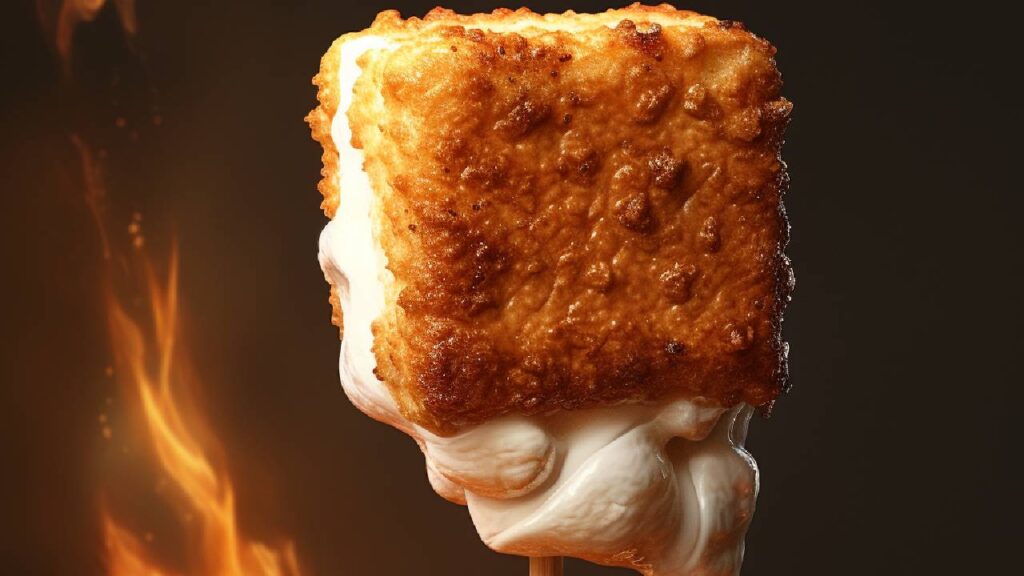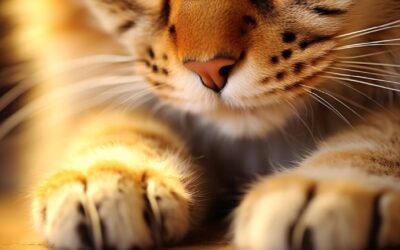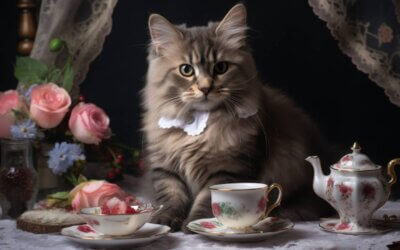We’ve all been there – indulging in a fluffy, sweet marshmallow treat, only to be met with those big, curious cat eyes, seemingly begging for a taste. It’s tempting to share the joy of sugary delights with our feline friends, but can cats eat marshmallows?
This seemingly innocent confectionary raises questions that delve into the intricacies of feline nutrition. In this article, we’ll explore whether marshmallows are a safe treat for our whiskered companions and why better choices might exist.
The Marshmallow Conundrum
First things first, can cats eat marshmallows? The short answer is yes; they can technically consume a small piece without an immediate adverse reaction. However, before you embark on a marshmallow-sharing escapade with your furry buddy, there are a few crucial factors to consider.
Feline Taste Buds: Not So Sweet
Cats have a unique palate that differs significantly from humans. They cannot taste sweetness due to the absence of taste receptors for sugars. Unlike us, cats are obligate carnivores, meaning their diet primarily consists of meat.
Thus, the sweetness of marshmallows holds no appeal for them. While they might nibble on a tiny piece out of curiosity, it’s important to note that their lack of sweet receptors makes this endeavor less exciting than it seems.
The Perils of Ingredients
Beyond the absence of a sweet tooth, the ingredients in marshmallows present potential dangers for cats. These sugary treats are laden with sugar, corn syrup, and artificial flavors, none aligning with a cat’s dietary requirements.
The high sugar content can lead to obesity and dental issues in felines, as their bodies are not equipped to process such sugar levels. Additionally, some marshmallow varieties contain xylitol, an artificial sweetener toxic to cats and can cause severe health complications.

Why Are Marshmallows Bad For Cats?
Let’s delve deeper into why marshmallows might not be the best option for treating your feline companion.
Digestive Dilemmas
Cats possess sensitive digestive systems that are finely tuned for processing animal proteins. The carbohydrates in marshmallows are far from the protein-rich meals that keep our feline friends healthy.
Feeding your cat sugary treats like marshmallows can lead to gastrointestinal upset, including vomiting and diarrhea. These uncomfortable experiences can not only distress your cat but also lead to unnecessary trips to the vet.
Weighty Matters
Obesity is a growing concern among domestic cats. Overindulging in calorie-rich, sugary foods can contribute to weight gain, leading to various health problems such as diabetes, joint issues, and heart disease.
A marshmallow might seem harmless, but it can add up when combined with other inappropriate treats. Eating healthier, cat-friendly snacks will prevent unwanted weight gain and promote your cat’s overall well-being.
Dental Dilemmas
Cats are known for their grooming habits but don’t possess a built-in toothbrush. The sticky nature of marshmallows can cling to a cat’s teeth, creating a breeding ground for bacteria and potentially leading to dental decay.
Regular dental care is vital for your cat’s oral health, and sugary treats like marshmallows only work against these efforts.
Safe Alternatives and Occasional Indulgences
While marshmallows may not be the best choice for treating your feline friend, there are safer alternatives that can add a touch of excitement to their lives.
Cooked Meat Morsels
Since cats are obligate carnivores, cooked meat morsels can serve as a more appropriate treat. Chicken, turkey, or even a small piece of cooked fish can be a delightful surprise for your cat’s taste buds.
Ensure the meat is boneless, cooked without seasoning, and served in small, manageable portions.
Commercial Cat Treats
Pet stores offer various cat treats specifically formulated to cater to your feline friend’s nutritional needs. These treats are designed to be both delicious and beneficial, making them a suitable choice for the occasional indulgence.
Conclusion
In the delightful realm of pet ownership, it’s only natural to want to share every joy with our feline companions, including our favorite treats. However, it’s best to exercise caution regarding the tantalizing world of marshmallows.
While cats can technically consume a small piece without immediate harm, the potential risks and lack of nutritional value make them an unwise choice. As responsible pet owners, let’s prioritize our cats’ health and happiness by opting for treats that align with their dietary needs.
Remember, a little love and attention go a long way in building a strong bond with your feline friend without compromising their well-being.

FAQs
Can cats eat vegan marshmallows?
Vegan marshmallows are typically made without animal-derived gelatin, which is good news. However, they still contain high sugar levels and other artificial additives that can harm cats.
Are there any marshmallow alternatives safe for cats?
Absolutely! Choose cooked, unseasoned meats like chicken or turkey to treat your cat. These protein-rich morsels can satisfy their carnivorous cravings while keeping them healthy and happy.
My cat accidentally ate a mini marshmallow. What should I do?
If your cat ingested a tiny bit of marshmallow, don’t panic. Monitor their behavior for signs of distress, such as vomiting or diarrhea. If symptoms persist or worsen, consult your veterinarian for guidance.
Why is xylitol harmful to cats?
Xylitol is a sugar substitute found in some marshmallows and other sugar-free products. In cats, xylitol can lead to a sudden insulin release, causing a dangerous drop in blood sugar levels. This can result in seizures, collapse, or even death.
Can I give my cat a marshmallow if it’s part of an ingredient in a pet treat?
If a commercial cat treat contains a small amount of marshmallow as an ingredient, it’s generally safe in moderation. However, always read the label carefully and consult your veterinarian if you need clarification on any ingredient.
How do I prevent my cat from begging for human food like marshmallows?
Preventing begging behaviors requires consistency and patience. Never feed your cat directly from your plate, and establish set feeding times. Provide stimulating toys, engage in playtime, and offer approved cat treats.







Never thought about marshmallows for cats! Has anyone tried giving them??/
Marshmallows for cat never thought about it! tried this with their feline friend? 🍡
Haha, who knew cats could have a sweet tooth! My cat would probably just bat it around